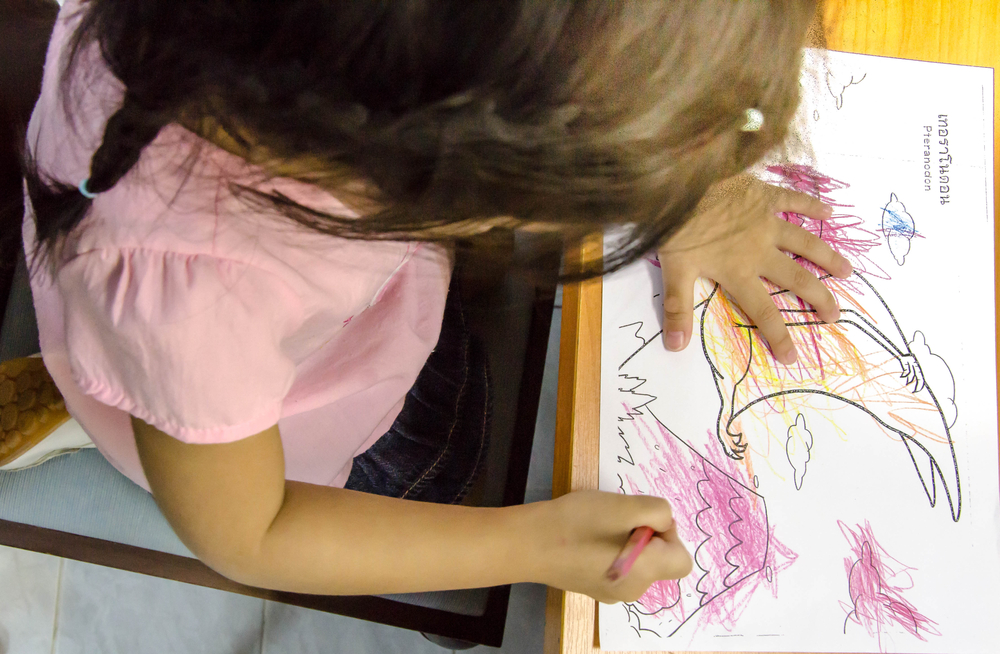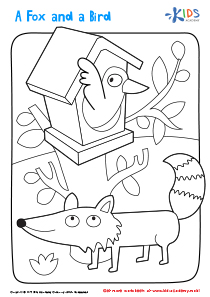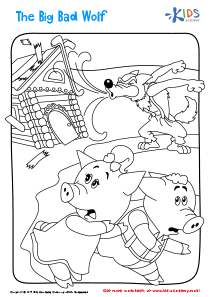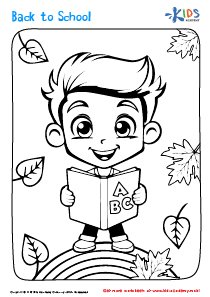Feelings and Emotions Worksheets for Ages 3-4
4 filtered results
-
From - To
Discover Feelings and Emotions for Ages 3-4: A Playful Learning Journey
Embark on an engaging exploration of self-expression and understanding with our Feelings and Emotions worksheets, perfectly tailored for the curious minds of 3-4-year-olds. Designed to introduce young learners to the colorful world of emotions, these worksheets are more than just educational tools—they're an invitation to explore, identify, and express feelings in a safe and nurturing environment. Through a series of creatively crafted activities, children will learn to name and describe their emotions, fostering emotional intelligence and empathy from an early age. Dive into this playful learning journey and watch your child blossom into a emotionally aware individual.
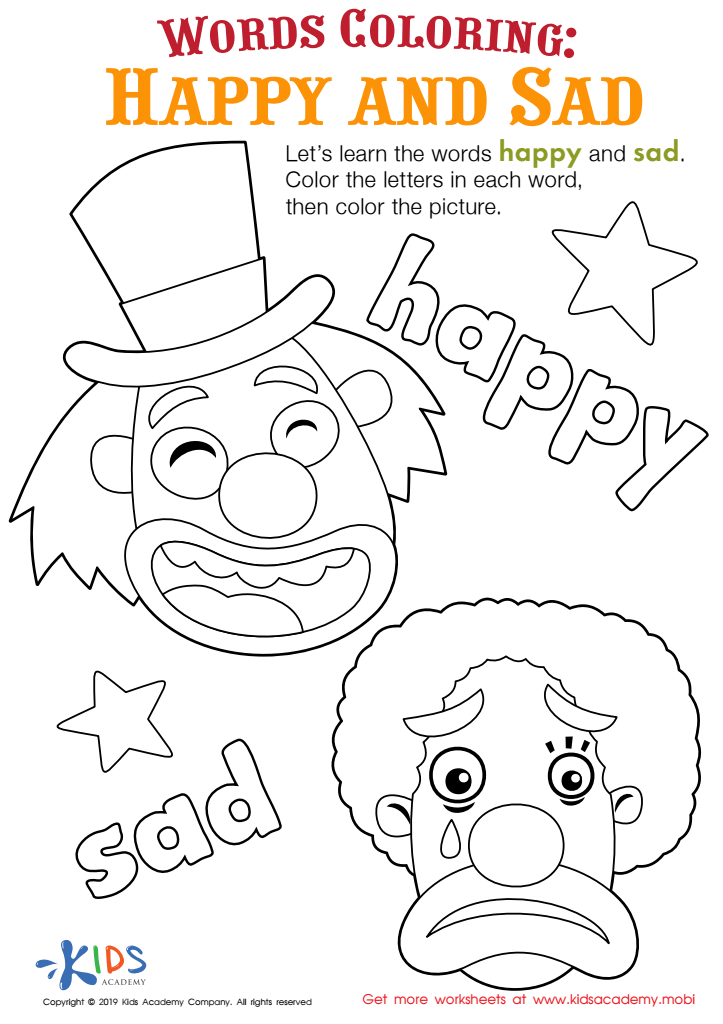

Happy and Sad Words Coloring Worksheet
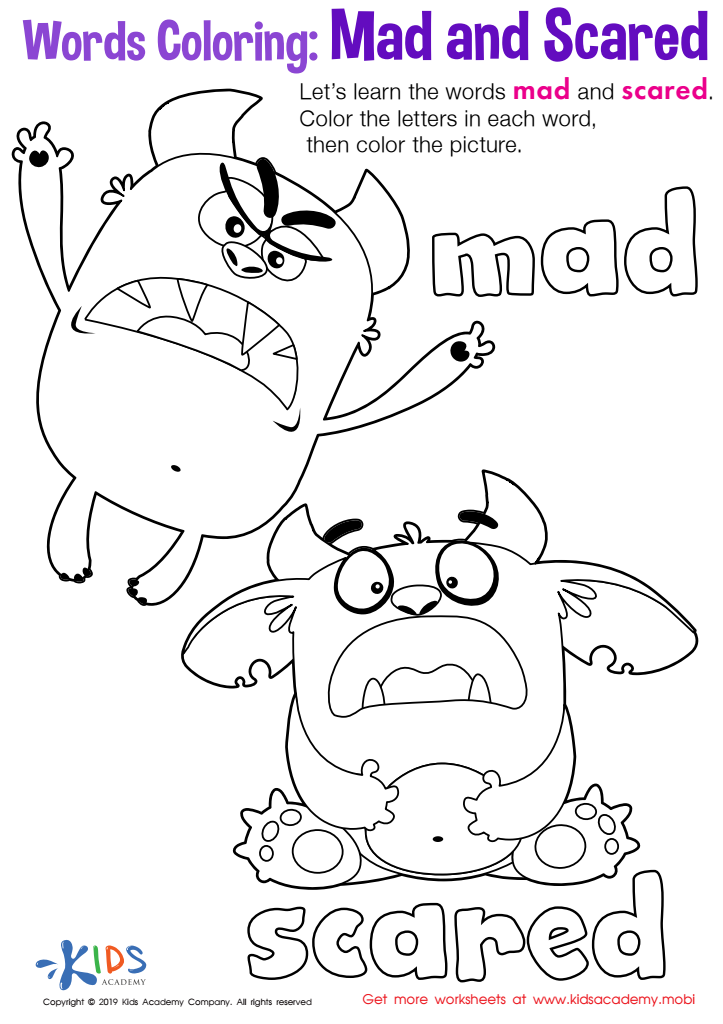

Mad and Scared Words Coloring Worksheet
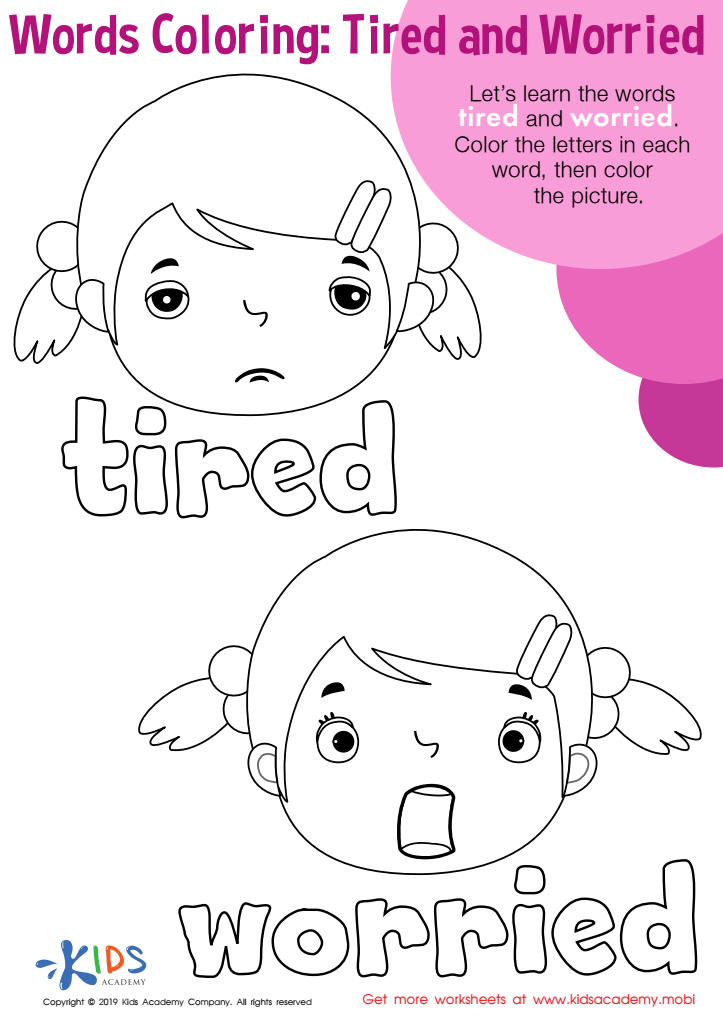

Tired and Worried Words Coloring Worksheet
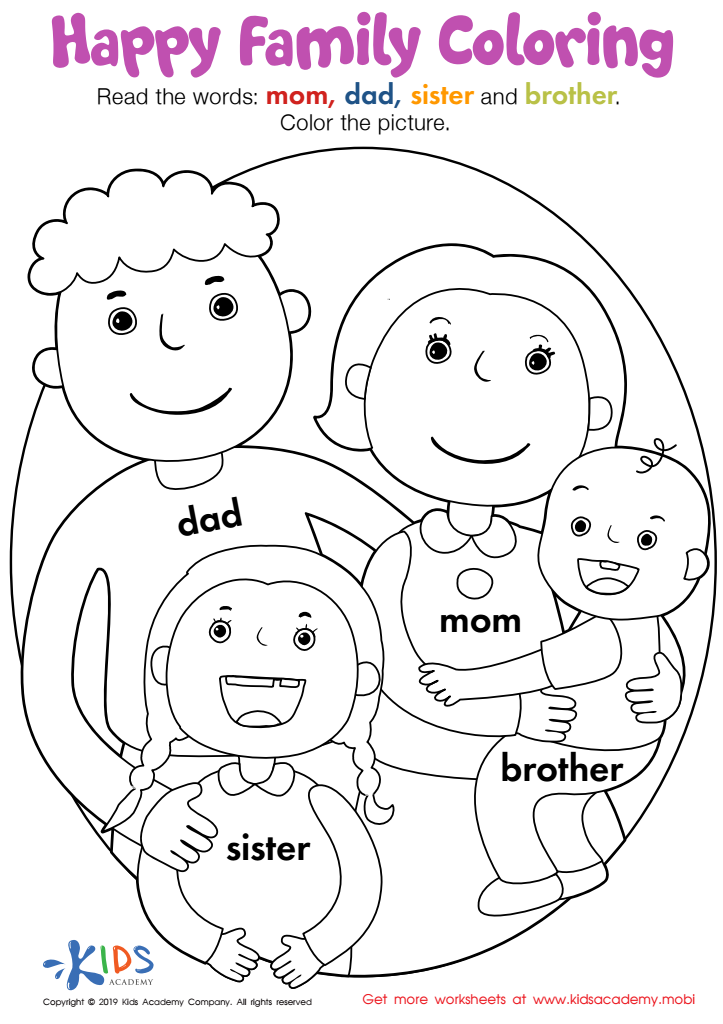

Happy Family Coloring Worksheet
Worksheets on Feelings and Emotions for Ages 3-4 are an essential tool in early childhood education, serving as a foundational step in emotional literacy and social development. At this critical age, children are just beginning to navigate the complex world of emotions, often experiencing feelings they don't yet have the words to express. These specialized worksheets offer a structured yet engaging way to help young learners identify, name, and understand their feelings and the emotions of those around them.
By incorporating activities tailored specifically for Ages 3-4, these worksheets present concepts in a manner that is accessible and relatable to young minds. Through a variety of interactive exercises such as matching emotions with facial expressions, coloring activities that depict different feelings, and story-based scenarios that encourage children to talk about how they would feel in certain situations, children are gently guided through the process of emotional recognition and articulation.
The use of Feelings and Emotions worksheets in early education settings fosters an environment of empathy, understanding, and open communication. It cultivates emotionally intelligent individuals capable of recognizing their own emotional states and empathizing with others. Moreover, this early foundation in emotional education equips children with the tools necessary for healthy emotional regulation and interpersonal relationships, benefits that will serve them well throughout their lives.
 Assign to the classroom
Assign to the classroom


